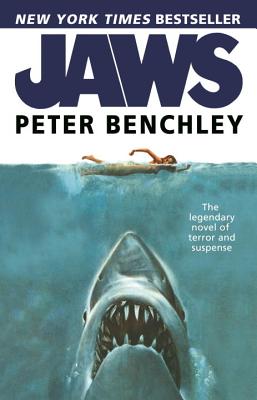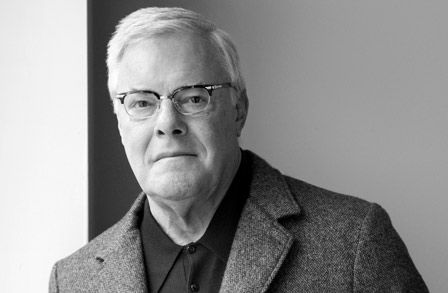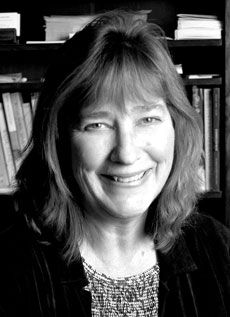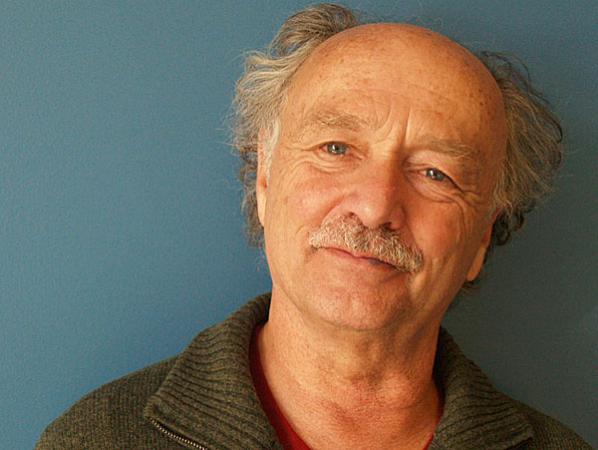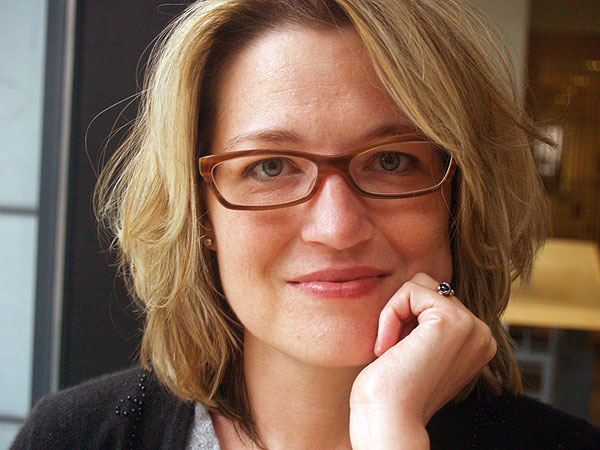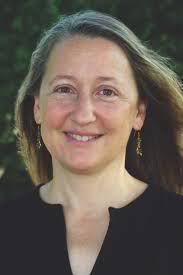In honor of National Poetry Month, I asked poets from across the state, and beyond, a question posed by the Academy of American Poets: "Where, ideally, would or do you plan to put some poetry this month?" Here are their responses:

"I would
plan to put poetry in the place of every ad on the Internet and on billboards
and in bathrooms and on the sides of buses and on television and before movies
in the movie theater and at the doctor's office and at signs at the mall and in
fortune cookies and when you log into your computer instead of a password you
would have to write a new poem and instead of leaving a message the system
would read you a poem and instead of news about bombs and guns and money there
would be poems. Instead of bills you would get different kinds of poems, a poem
about electricity, a poem about natural gas, a poem about water. When you
cleaned your house, you might vacuum up a bunch of letters and the machine
would make a poem. In the refrigerator, instead of aging lettuce, you'd get a
poem. Maybe a little wilted, a little tired, but with some life left in it.
Inside your wallet, instead of plastic and bills and receipts--poems. Instead
of eviction notices--poems. Instead of prison sentences, poems. Instead of a
line of cocaine, poems. Instead of giving grades to students--poems. Instead of
standardized tests--poems. Poems instead of nuclear weapons. Poems instead of
knives. Poems instead of rape. Poems instead of pollution. Poems instead of
trafficking children. Poems instead of prostitution. Poems everywhere taking up
the space of things we do and make to violate and dishonor and destroy
ourselves, our home, and everything that shares the earth with us."
"I plan to put poetry amidst
the metal and stone monstrosities, and the glass and boulders small and large,
and the wild rushes of wormwood everywhere, and along the shore of the
Mississippi River, in Northeast Minneapolis, down beyond the deadend of 13th
Avenue and 2nd Street, where we've seen muskrats and houseboat ambassadors, and
the remains of cookfires and stormdrift and deer and crows and kids, and have
banged drums and passed between us a peaceful vapor, and where we built a fire,
and performed the Death of Poetry."
"The poetry venue I'm
looking forward to this month is a reading at the National Portrait Gallery in
Washington D.C., with Yusef Komunyakaa and Paul Muldoon. The Smithsonian
commissioned a dozen poets, including the three of us, to each write a poem
related to the Civil War to be included in a volume, LINES IN LONG ARRAY,
to be published this fall to commemorate the one hundred and fiftieth
anniversary of the War, a volume which will also include photographs by Sally
Mann of Civil War sits and poems and phototographs from the Civil War era.
We're to read the poems we've written for the volume, along with other
poems."
"I send key poems to
my children, I gather poems that I think might inspire my son and my nephew,
who are both writers, and send them small poems taped into little
notebooks. I hand write poems in little notebooks that I keep for my
grandchildren, Aisling and Ezra."

"Ideally,
I would gather a group of Saint Paul Public Schools poetry-fearful teachers in
a lovely room at the Minnesota Humanities Center. They’d be given a generous
honorarium, served delicious food, and their schools would be reimbursed for
substitute pay. Into the room would walk John Minczeski, a brilliant and
experienced poet-in-the-schools. John would read them Pablo Neruda poems in his
lovely melodious voice; he’d recite poetry in Italian; he’d read Rolf Jacobsen
poems. The poems would float through the air and into the minds of the teachers,
who, with eyes closed, would listen with their hearts, with their senses, with
open minds and no expectations, letting the poems wash over their bodies like
feathers, leaves, or snow. They would not worry how to dissect, understand,
explain, or teach the poems: they would experience them. They’d leave the day joyfully
ready to share poems with their students, who would be inspired to express
their own ideas in creative, strange, and wonderful ways. Here’s one poem John
might read:"
Guardian
Angel
By
Rolf Jacobsen, translated by Roger Greenwald
I am the bird that knocks at your window in the morning
and your companion, whom you cannot know,
the blossoms that light up for the blind.
I am the glacier’s crest above the forests, the dazzling one
and the brass voices from cathedral towers.
The thought that suddenly comes over you at midday
and fills you with a singular happiness.
I am one you have loved long ago.
I walk alongside you by day and look intently at you
and put my mouth on your heart
but you don’t know it.
I am your third arm and your second
shadow, the white one,
whom you don’t have the heart for
and who cannot ever forget you.
Kathryn Kysar is the author of two books of poetry Dark Lake and Pretend the
World and the editor of Riding
Shotgun: Women Write About Their Mothers. She has two children in the Saint
Paul Public Schools.
"I love the sidewalk
poetry program in St. Paul. Such a terrific idea and I've seen so many
people stop, look down and read the poems. So, I am thinking other public
places: parks, plazas.
I wish every coffee
house had its "local poet." There's a bar or restaurant that
has a "David Ferry" corner, for example. It's the
unexpectedness of seeing poems in such places that is wonderful. Years ago
there was a program in Minneapolis that put photographs up on billboards and,
of course, there is the on again off again program that puts poems in public
buses. John Berryman told a class once that he used to leave copies of his
books on buses for other people to pick up. I don't suppose we should
have to go that far, but maybe....
Poems always particularly
resonate in places and situations where people are under a lot of stress:
hospitals and prisons, for example."
"Assuming that I could successfully accomplish this, I think
I would like to put a short daily poem on my answering machine, aka voice mail,
before the beep. Of course, no one calls me. But I do get robocalls, and
wisely-chosen poems could very well disable them!"
"In honor of Louis Jenkins, every ice house should have a
poem on it. To honor Connie Wanek, put a poem in your garden. And for
myself, I'd like to see a poem on the dock of every swimming hole. But -- even
more seriously -- my primary goal this year would be to put poems in children's
hospitals, adult hospitals, doctor's offices, and hemo-dialysis centers -- in
honor of my brother, Fred Manfred, and his comrades, who have survived in the
close-to-invisible war-zone of long term illnesses for decades. They could use
a lift. And so could those dreary rooms and corridors."
"I
plan on putting Natasha Trethewey's Native
Guard into the heads of a group of Core lit students at St. Kates,
this commencing Monday on the heels of reading Light in August: You know Trethewey alludes to Joe Christmas
in a couple poems in that collection. And on Thursday, April 18, we're doing a Poem
In Your Pocket thing: http://news.stkate.edu/articles/poeminyourpocket.html
Ideally . . . At the State Capital, I'd love to read with lots of other
Minnesota poets somewhere on the Capital grounds or over at the History Center:
Some sort of one day in April state poetry celebration."
“I teach creative writing and literature courses at Michigan
Technological University and the bulk of my students are in the engineering
college. That said, my ongoing project is put as much poetry into the laps of
as many would-be engineers as possible. April's mission will be no different.
They don't often know it, but engineers need poetry even more than most, and
the experience for everyone involved can most definitely be described as ‘unexpected.’”
“I would need a grant or a benefactor or a savvy plan to
pitch (pun intended) to Twins marketers, for if I could put poetry in an
unexpected place I'd want to put it in Target Field on game day. Specifically,
I'd like fans to receive copies of Poetry City, USA, Vol. 3, the
anthology of poems and prose on poetry that goes hand in hand with the annual
Great Twin Cities Poetry Read (the former of which I edit, the latter of which
I curate). Everybody knows that both baseball and poetry go well with peanuts
and beer, right? I also think that there is going to be a lot of late-inning
restlessness, given the state of the Twins pitching staff. When the fans can no
longer bear to look at the product on the field, they can turn to the poetry in
their hands. Saving the day, is what the poetry will do.”
“I’ve
been attacked by a mean cold, and it’s made my head pure static and fuzz! Speaking
of my head, that’s one place I’m putting poems; as always, I am memorizing new
poems and saying ones that I know. I think it would be nice to see poems
on the backs of cereal boxes and on the front page of the newspaper (you did
say “ideally,” didn’t you?). Since I am usually driving across the
prairie between my house in Chaska and St. Peter, I don’t get a chance to ride
the bus or light rail, but both of those would be fine places for poems . . .
and wouldn’t it be nice if everyone sent a poem to someone else this month?”
“I had first thought to suggest poetry in all sorts of
waiting rooms--the DMV and doctors' offices came to mind--but then I could too
easily picture the anxiety of waiting canceling out all the wonders of losing
oneself in a poem. A better idea would be to have a poem, ideally recited and
read, shown at the movie theater an lieu of all the pre-preview ads. There
audiences sitting in the dark, in soft seats, with minds waiting to be moved
and entertained, might truly receive a poem and be changed.”
"In my mouth."
"I've
been playing with this idea since you sent it to me, trying to put poetry in
the most outrageous-but-plausible place possible. 'Restaurant menus'
was my favorite place I came up with.
But
really, the most unexpected place for poetry to appear would be right on the
nightstand, the passenger seat of one's car, in the briefcase, in the stack of
books from the library. I have two theories on why contemporary readers don't
embrace poetry as much as they do prose: one, the line breaks. Two: the lyric
poem is a frozen moment the poet walks inside, exploring. We aren't used to
time stopping on the page like that. Ideally, this month, I hope to put poetry
in the most ordinary places possible, right up there with pleasure reading.
Happy National Poetry Month."
-Katrina Vandenberg, author of The Alphabet Not Unlike The World
"I'd
love to see more poetry in public spaces; on sidewalks,
on buses, in town squares and shopping malls and community centers.
Placing poetry in the public eye has the potential to inspire discussion
about the role of language in civic life. Poetry is a form of
communication and increasing its visibility in public space(s) might
inspire dialogue about the enduring value of creative expression in our
changing communication environment."
As a poet and potter--with interests in classical
antiquity, paleontology, and similar old stuff--I'm fascinated by fragments of
manuscript-- burned at the edges, floating here and there--by scraps of Sappho,
by scraps of grocery lists, fossils, potsherds, runestones. I've
experimented for quite awhile with inscribing on my pottery, usually very banal
journal entries and little gnomic verses. I'm interested in how a scrap
of crockery suggests a whole culture, how a fossil embeds the memory of life
form. I can't stay away from wet concrete. I love the mystery of sending
and receiving messages among present and past and future. Most of what I create
I give away to the Goodwill, and it sometimes passes me again on some stream of
detritus. I like the idea of accidental survival, which is how most
pottery and lots of manuscripts end up in museums.
"I'd like to see my poems up on people's refigerators."
-Tim Nolan, author of and then
This month, I plan to put
poetry in the hands of those who might not otherwise read it. When I find a
poetry collection I love, I plan to buy two copies--one for me, and one to give
to a friend, coworker, family member, or acquaintance. What better way to increase
poetry readership than to give great poems directly to other people?
My poetry
will be onstage at the Guthrie Theater in Minneapolis in a play titled Nice
Fish April 12-May 18.
There isn't any place we shouldn't
put poetry -- including putting it away for a while. That's a perfectly
honorable thing to do with poetry! We can leave it out on the counter for our
beloved, like bowl of yellow pears. Or we can fold it up into a tiny square and
bury it in our sock drawer, like our most dangerous secret. Either way, it
will lie there patiently and wait to be discovered. Yesterday, I walked out the
door at work to grab some lunch, and this sign on the sidewalk stopped me dead
in my tracks. Poetry! Namaste!
My wife and I fell in love in
college, where Shakespeare and the classics and contemporary poetry were part
of our daily lives. Since then, our marriage has become a bit … shall we say …
prosaic. I hope to … ahem … re-"verse" this trend by bringing some poems
to the bedroom.
-Todd Boss, author of Pitch
"I'll
be
giving each person at a board meeting a particular poem chosen just for
him or her. And I'll be enclosing poetry bookmarks - as I often do - in
envelopes with my utility bill payments. Some poems will go in emails
and probably on Face Book and I love to mail poems to people on
postcards. And I'm hoping to get some poems in the mail too!"
-Patricia Kirkpatrick, author of Odessa
"David
Young, distinguished poet, co-founder of FIELD magazine, professor emeritus of
Oberlin College’s English and creative writing departments,
internationally-renowned translator (including, notably, from the Chinese),
threw a dinner party for friends. You’d have been lucky to be invited:
David—as witnessed by his poetry-infused cookbook Seasonings—can slice and
dice. It was an Asian-themed meal. At the end of the evening, after the courses
had run amid good conversation, David presented each guest with a fortune
cookie. On its face, this was a joke—the fortune cookie being, of course,
an American invention. But David (as usual) had gone several steps further.
With tweezers and a squint, he’d extracted the store-bought fortunes and
substituted similar slips of paper. On each slip he’d composed a fortune in the
form of a couplet, personalized for each guest. Imagine the surprise and sweet
wonder! It was a coup."
"I love this question. This month, I'll be reading at several locations in
St. Paul, the University Center in Rochester, and the Brick House
Coffee Shop in Austin. But since you asked about unexpected places, my
first and lingering thought was to leave a poem on a lover's mouth. My
more realistic-at-this-point-in-my-life answer is that you've inspired
me to sneak some poems into the Como Conservatory and leave them by the
koi pond."
-Su Smallen, author of Buddha, Proof



